Clonazy 1 mg Tablet 10's
MRP ₹53.4
(Inclusive of all Taxes)
₹8.0 Cashback (15%)
Provide Delivery Location
Online payment accepted
 Prescription drug
Prescription drugWhats That
Composition :
Manufacturer/Marketer :
Consume Type :
Return Policy :
About Clonazy 1 mg Tablet 10's
Clonazy 1 mg Tablet 10's belongs to the group of medications called benzodiazepines, primarily used to treat seizures or fits due to epilepsy, panic disorder and involuntary muscle spasms. Clonazy 1 mg Tablet 10's may also be used to treat restless leg syndrome. Epilepsy is a common neurological disorder that produces recurrent seizures. Seizures occur due to a sudden burst of electrical activity in the brain that disrupts its normal functioning. Panic disorder is an anxiety disorder characterised by frequent episodes of panic or fear.
Clonazy 1 mg Tablet 10's contains clonazepam, which works by increasing the level of a calming chemical known as gamma-aminobutyric acid (GABA) in the brain. This helps relieve anxiety and seizures (fits). It also helps relax the tense muscles. Thereby, Clonazy 1 mg Tablet 10's aids in the treatment of seizures, panic disorder, and involuntary muscle spasms.
Your doctor will advise you on how often you need to take this medicine based on your medical condition. In some cases, Clonazy 1 mg Tablet 10's may cause side effects such as drowsiness, dizziness, fatigue, and problems with memory, walking, and coordination. Most of these side effects do not require medical attention and gradually resolve over time. However, please contact your doctor if the side effects are persistent.
Clonazy 1 mg Tablet 10's is a habit-forming drug. Therefore, before stopping this medicine, consult your doctor as it may cause withdrawal symptoms like seizures that do not stop, hallucinations (hearing or seeing things that are not there), shaking, and stomach and muscle cramps. If you are pregnant or breastfeeding, consult your doctor before taking Clonazy 1 mg Tablet 10's. Avoid drinking alcohol while taking Clonazy 1 mg Tablet 10's as it may cause increased dizziness and drowsiness. It is recommended not to drive or operate any machinery as Clonazy 1 mg Tablet 10's may cause dizziness, drowsiness, and problems with walking and coordination.
Uses of Clonazy 1 mg Tablet 10's
Directions for Use
Key Benefits
Clonazy 1 mg Tablet 10's belongs to the group of medications called benzodiazepines, primarily used to treat seizures or fits due to epilepsy, panic disorder and involuntary muscle spasms. Clonazy 1 mg Tablet 10's may also be used to treat restless leg syndrome. Clonazy 1 mg Tablet 10's contains clonazepam, which works by increasing the level of a calming chemical known as gamma-aminobutyric acid (GABA) in the brain. It decreases the feeling of nervousness, stress, and anxiety, which leads to a state of calmness and relaxation. Clonazy 1 mg Tablet 10's benefits people who struggle with anxiety and worries in daily life. Regular intake of the prescribed dose of Clonazy 1 mg Tablet 10's improves social life and the ability and performance at work, and general wellbeing.
Storage
- Get enough sleep. Maintain a regular sleep cycle.
- Eat a healthy diet and exercise regularly.
- Manage stress with yoga or meditation.
- Limit alcohol and caffeine.
- Avoid driving or operating machinery unless you are alert.
- Approach calmly, use a non-threatening tone, actively listen, validate concerns, and provide clear instructions.
- Practice environmental changes like adjusting lighting, noise levels, and providing a safe space.
- Recognizing and praising desired behaviors.
- Maintaining consistent schedules for daily activities.
- Try to engage in calming activities to redirect focus.
- Inform your doctor about the symptoms you're experiencing due to medication.
- Your doctor may adjust your treatment plan, which could include changing your medication, adding new medications, or offering advice on managing your symptoms.
- Practice good hygiene, including frequent handwashing, avoiding close contact with others, and avoiding sharing utensils or personal items.
- Stay hydrated by drinking plenty of fluids to help loosen and clear mucus from your nose, throat, and airways.
- Get plenty of rest and engage in stress-reducing activities to help your body recover. If your symptoms don't subside or worsen, consult your doctor for further guidance.
- Inform your doctor about dizziness symptoms. They may adjust your medication regimen or prescribe additional medications to manage symptoms.
- Follow your doctor's instructions for taking medication, and take it at the same time every day to minimize dizziness.
- When standing up, do so slowly and carefully to avoid sudden dizziness.
- Avoid making sudden movements, such as turning or bending quickly, which can exacerbate dizziness.
- Drink plenty of water throughout the day to stay hydrated and help alleviate dizziness symptoms.
- If you're feeling dizzy, sit or lie down and rest until the dizziness passes.
- Track when dizziness occurs and any factors that may trigger it, and share this information with your doctor to help manage symptoms.
- Uncoordinated muscle movements need immediate medical attention.
- Observe your movements and try to understand and control the particular movement.
- Regularly do strengthening exercises to improve blood flow throughout the body and avoid involuntary movements.
- Implement massage techniques to enhance blood flow to organs.
- Take a balanced diet and quit smoking.
- Practice yoga and meditation to improve thought processes and reduce uncontrolled and involuntary movements.
- If you experience symptoms like coughing, wheezing, chest tightness, or difficulty breathing after taking medication, seek medical attention immediately.
- Your healthcare provider will work with you to stop the medication causing the reaction, start alternative treatments, and provide supportive therapy.
- To manage symptoms and prevent complications, follow your doctor's advice to use inhalers or nebulizers as prescribed, practice good hygiene, avoid irritants, stay hydrated, and get plenty of rest.
- Regularly track your symptoms and report any changes or concerns to your healthcare provider.
Drug Warnings
Do not take Clonazy 1 mg Tablet 10's if you are allergic to clonazepam or any benzodiazepine class of drugs (diazepam, chlordiazepoxide, bromazepam, or flurazepam). Inform your doctor if you have lung disease, glaucoma, muscle weakness (myasthenia gravis), sleep apnoea (difficulty in sleeping), depression, mood problems, suicidal behaviour/thoughts, liver or kidney problems. Taking Clonazy 1 mg Tablet 10's with opioid medicines can cause severe drowsiness, breathing problems, coma, and death. Clonazy 1 mg Tablet 10's should be taken with extreme caution in patients with a history of alcohol or drug abuse. Do not stop taking Clonazy 1 mg Tablet 10's suddenly as it may cause withdrawal symptoms.
Drug-Drug Interactions
Drug-Drug Interactions
Login/Sign Up
Taking Clonazy 1 mg Tablet with Sodium oxybate can enhance the sedative effects on the central nervous system.
How to manage the interaction:
Taking Clonazy 1 mg Tablet and Tramadol together can result in an interaction, it can be taken if a doctor has advised it. However, if you experience any symptoms such as dizziness, drowsiness, difficulty concentrating, numbness and tingling of extremities, or hypersensitivity to light and noise, consult a doctor immediately. Do not discontinue any medications without consulting a doctor.
Co-administration of Clonazy 1 mg Tablet with methadone may cause serious side effects like respiratory depression (a condition in which fluid builds up in the lungs).
How to manage the interaction:
Consult the doctor if you are taking Clonazy 1 mg Tablet with methadone. Until you know how these medicines affect you, avoid driving or operating hazardous machinery as these medications may cause dizziness, drowsiness, difficulty concentrating, and impairment in judgment, reaction speed, and motor coordination. Do not exceed the dose and duration prescribed by your doctor. Do not discontinue the medication without a doctor's advice.
Co-administration of Pentazocine with Clonazy 1 mg Tablet can increase the risk of side effects.
How to manage the interaction:
Taking Clonazy 1 mg Tablet with Pentazocine together can possibly result in an interaction, but it can be taken if a doctor has advised it. They can recommend different options that won't cause any problems. If you notice any symptoms like feeling dizzy, having trouble breathing, or feeling very tired, make sure to call a doctor immediately. Do not discontinue any medications without consulting a doctor.
Co-administration of fentanyl and Clonazy 1 mg Tablet can increase the risk of side effects.
How to manage the interaction:
Although combining Fentanyl and Clonazy 1 mg Tablet can result in an interaction, they can be taken together if prescribed by a doctor. However, consult a doctor immediately if you feel sleepiness, loss of balance, or confusion. Do not stop taking any medication without consulting a doctor.
Co-administration of Clonazy 1 mg Tablet with Tramadol may significantly lead to adverse effects such as respiratory difficulties (a condition in which fluid builds up in the lungs).
How to manage the interaction:
Taking Clonazy 1 mg Tablet and Tramadol together can result in an interaction, it can be taken if a doctor has advised it. However, if you experience any symptoms such as dizziness, drowsiness, difficulty concentrating, numbness and tingling of extremities, or hypersensitivity to light and noise, consult a doctor immediately. Do not discontinue any medications without consulting a doctor.
Co-administration of Sufentanil with Clonazy 1 mg Tablet can increase the risk of side effects.
How to manage the interaction:
Taking Clonazy 1 mg Tablet with Sufentanil together can possibly result in an interaction, but it can be taken if a doctor has advised it. If you notice any of these symptoms - feeling tired or sleepy, having trouble breathing, or a slower heartbeat - make sure to contact a doctor right away. Do not discontinue any medications without consulting a doctor.
Using Morphine together with Clonazy 1 mg Tablet can cause central nervous system depression (a physiological state that can result in a decreased rate of breathing, decreased heart rate, and loss of consciousness).
How to manage the interaction:
Taking Morphine with Clonazy 1 mg Tablet can result in an interaction, but it can be taken if a doctor has advised it. However, if you experience any symptoms like shortness of breath, feeling tired, having a cough, dizziness, drowsiness, difficulty concentrating, impaired judgment, reaction speed, and motor coordination, make sure to contact a doctor immediately. Do not stop using any medications without consulting a doctor.
Co-administration of Nalbuphine with Clonazy 1 mg Tablet can make the side effects worse.
How to manage the interaction:
Although there is a possible interaction between Clonazy 1 mg Tablet and Nalbuphine, you can take these medicines together if prescribed by a doctor. If you notice any symptoms like feeling dizzy, having trouble breathing, or feeling very tired, make sure to call a doctor right away. Do not stop using any medications without talking to a doctor.
Co-administration of Clonazy 1 mg Tablet with Esketamine may increase side effects.
How to manage the interaction:
Although there is a possible interaction, Clonazy 1 mg Tablet can be taken with Esketamine if prescribed by the doctor. Consult the prescriber if you experience side effects such as confusion, drowsiness, difficulty concentrating, and impairment in judgment, thinking, reaction speed, and motor coordination. Do not discontinue the medication without a doctor's advice.
Co-administration of Clonazy 1 mg Tablet with Hydrocodone may cause serious side effects like respiratory depression (a condition in which fluid builds up in the lungs).
How to manage the interaction:
Consult the doctor if you are taking Clonazy 1 mg Tablet with Hydrocodone. Until you know how these medicines affect you, avoid driving or operating hazardous machinery as these medications may cause dizziness, drowsiness, difficulty concentrating, and impairment in judgment, reaction speed, and motor coordination. Do not exceed the dose and duration prescribed by your doctor. Do not discontinue the medication without consulting a doctor.
Drug-Food Interactions
Drug-Food Interactions
Login/Sign Up
Diet & Lifestyle Advise
- Do regular exercise, which can help lower anxiety by releasing endorphins and improving your sleep and self-image.
- Find humor in your daily life. Try to watch light-hearted shows to help relieve stress.
- You can increase your mindfulness by including yoga, meditation, mindfulness-based cognitive therapy, and mindfulness-based stress reduction.
- Drink enough water to stay hydrated, and limit or avoid alcohol and caffeine to relieve anxiety.
- Include a diet rich in whole grains, vegetables, and fruits.
- Herbs like turmeric, ginger, and chamomile contain anti-inflammatory properties. Including this stuff in meals can reduce inflammation caused due to anxiety disorder.
- Reduce alcohol, caffeine, added sugar, high salt, and high fat intake. Especially trans-fat may also help reduce inflammation.
- You can include antioxidants in your daily diet like ashwagandha, omega-3 fatty acids, green tea and lemon.
- Try to spend time with your friends and family. Having a strong social network may help you lower the risk of anxiety.
Side Effects of Clonazy 1 mg Tablet 10's
- Drowsiness
- Dizziness
- Fatigue
- Problems with memory, walking, and coordination
Habit Forming
Therapeutic Class
All Substitutes & Brand Comparisons
RX
Not for online saleLOZEP 1MG TABLET
Priya Pharmaceuticals Pvt Ltd
₹24
(₹2.16 per unit)
59% CHEAPERRX
Not for online saleClorpam 1 mg Tablet 10's
East West Pharma India Pvt Ltd
₹24.5
(₹2.21 per unit)
58% CHEAPERRX
Out of StockNot for online saleActapam-Md 1Mg Disintegrating Tab 10'S
Actawin Lifesciences Pvt Ltd
₹36
(₹3.24 per unit)
39% CHEAPER
Author Details
We provide you with authentic, trustworthy and relevant information
Drug-Diseases Interactions
Drug-Diseases Interactions
Login/Sign Up
Benzodiazepines should not be used by people who have open-angle glaucoma or acute angle-closure glaucoma. While these drugs have very rarely being associated with increased intraocular pressure, they do not have anticholinergic effect.
How to manage the interaction:
Clonazy 1 mg Tablet is contraindicated in patients with acute angle-closure glaucoma or untreated open-angle glaucoma.
Benzodiazepines have the potential to cause abuse and dependency. Particularly during extended usage and/or high dosages, tolerance as well as physical and psychological dependency might form.
How to manage the interaction:
Benzodiazepines have the potential to cause dependence and abuse. If dependency is suspected, withdrawal of benzodiazepine therapy should be done by gradual dose reduction.
When administered in large doses and/or by intravenous administration, benzodiazepines have the potential to cause respiratory depression and apnea. However, some individuals, such as the elderly, the very ill, those who are impaired or taking other CNS depressants, as well as those who have a limited ventilatory reserve, chronic pulmonary insufficiency, or other respiratory diseases, may be susceptible even at regularly prescribed dosages. In these individuals, benzodiazepine therapy should be used with caution.
How to manage the interaction:
When given in high dosages and/or by intravenous administration, benzodiazepines may cause respiratory depression and apnea. Therapy with benzodiazepines should be administered cautiously in patients including elderly, debilitated or severely ill patients, those receiving other CNS depressants, those with limited ventilatory reserve, chronic pulmonary insufficiency or other respiratory disorders.
The use of benzodiazepines for patients with seizure disorders may increase the frequency of generalised tonic-clonic seizures (grand mal) or accelerate the onset of them. The dosage of an appropriate anticonvulsant drug may need to be raised. Particularly after lengthy usage and/or high dosages, abruptly stopping benzodiazepine medication can cause seizures and other withdrawal symptoms. Patients with a history of seizures who discontinue benzodiazepine medication suddenly may experience status epilepticus.
How to manage the interaction:
Benzodiazepines in patients with seizure disorders may increase the incidence of fits. Dose adjustment or appropriate anticonvulsant medication might need to be initiated. Do not discontinue medication without first consulting with the physician.
Benzodiazepines in paediatric and psychiatric patients with aggressive hyperactivity problems. During benzodiazepine medication for such individuals, it is important to keep monitoring out for any indications of paradoxical stimulation.
How to manage the interaction:
Use of benzodiazepines with alcohol is not recommended. Therapy with benzodiazepines should be administered cautiously in patients who might be prone to acute alcohol intake.
The central nervous system is depressed by benzodiazepines, which can also result in or aggravate mental depression as well as suicidal behaviour and ideas. Patients who were being treated for depression with some of these medications have also reported experiencing episodes of mania and hypomania. In individuals with a history of depression or other mental illnesses, the use of benzodiazepines should be provided with caution. Patients should be watched for any changes in attitude or behaviour. It could be wise to hold off on giving these people a lot of medicine.
How to manage the interaction:
Benzodiazepines may cause or exacerbate mental depression and cause suicidal behavior and ideation. Therapy with benzodiazepines should be administered cautiously in patients with a history of depression or other psychiatric disorders. Monitoring is advised in patients for any changes in mood or behavior.
FAQs
Drug-Drug Interactions Checker List
- ALFENTANIL
- BUPRENORPHINE
- CODEINE
- HYDROMORPHONE
- DROPERIDOL
- OLANZAPINE
- KETAMINE
- SODIUM OXYBATE
- ENALAPRIL
- AMLODIPINE
- FELODIPINE
- INDAPAMIDE
- CIMETIDINE
- RIFAMPICIN
- FLUCONAZOLE
- DIAZEPAM
- LORAZEPAM
Special Advise
- Clonazy 1 mg Tablet 10's can cause dependance and abuse. Therefore, take Clonazy 1 mg Tablet 10's only in prescribed doses and as directed by your doctor. Do not self-medicate.
- Clonazy 1 mg Tablet 10's may cause suicidal thoughts. Consult your doctor immediately if you notice suicidal behaviour.
Disease/Condition Glossary
Seizures: Fits/Seizure is a sudden rush of electrical activity in the brain. It is of two types: Generalized seizure (affects the entire brain) and Partial seizures (affects one part of the brain). A mild seizure might be difficult to recognize as it lasts for only a few seconds, during which one lacks awareness. Stronger seizures cause uncontrollable muscle twitches and spasms, lasting for a few seconds to several minutes. Lack of sleep, high fever, stress, bright lights, caffeine, certain medicines, alcohol, and skipping meals/overeating are a few of the most common triggers for seizures.
Panic disorder: Panic disorder is an anxiety disorder characterised by frequent episodes of panic or dread. At times, everyone feels sensations of anxiety and panic. It is a natural reaction to stressful or potentially harmful conditions. However, someone suffering from panic disorder experiences worries, stress, and panic on a regular basis and at any moment, frequently for no apparent cause.
Involuntary muscle spasm: When the nerve impulses that control muscle movements are damaged or interrupted, it could lead to muscle spasms. The sudden involuntary contractions of the muscle can be painful and uncomfortable. Symptoms include muscle tightness, joint stiffness, unusual posture, difficulty in movement, and pain in affected muscles and joints. Fatigue (weakness), stress, extreme heat or cold, infection and tight clothing can trigger muscle spasms.
Restless leg syndrome: Restless leg syndrome, also known as Willis-Ekbom illness, is a common nervous system disorder characterised by an intense, irresistible urge to move the legs. The primary symptom of restless leg syndrome is a strong need to move the legs. It can also induce a creeping or crawling sensation in the feet, calves, and thighs. The sensation is frequently exacerbated in the evening or at night. The arms are occasionally affected as well.

Have a query?
Alcohol
Safe if prescribed
You are recommended not to consume alcohol along with Clonazy 1 mg Tablet 10's to avoid unpleasant side-effects like drowsiness, dizziness, or sleepiness.
Pregnancy
Consult your doctor
Clonazy 1 mg Tablet 10's belongs to pregnancy Category D. It is usually not recommended during pregnancy. However, consult your doctor if you are pregnant or planning for pregnancy.
Breast Feeding
Consult your doctor
Avoid breastfeeding while on treatment with Clonazy 1 mg Tablet 10's.
Driving
Safe if prescribed
Clonazy 1 mg Tablet 10's may cause dizziness, drowsiness and visual disturbances which may affect the ability to drive or operate machinery. So, do not drive or operate heavy machinery if you feel sleepy or dizzy after taking Clonazy 1 mg Tablet 10's.
Liver
Consult your doctor
Clonazy 1 mg Tablet 10's to be taken with caution, especially if you have a history of Liver diseases/conditions. The dose may have to be adjusted by your doctor.
Kidney
Consult your doctor
Clonazy 1 mg Tablet 10's to be taken with caution, especially if you have a history of kidney disorders. The dose may have to be adjusted by your doctor.
Children
Safe if prescribed
It is not known whether Clonazy 1 mg Tablet 10's is safe or effective in treating conditions like panic disorder in children younger than 18 years. So, your doctor will decide whether Clonazy 1 mg Tablet 10's can be given to children less than 18 years of age or not.





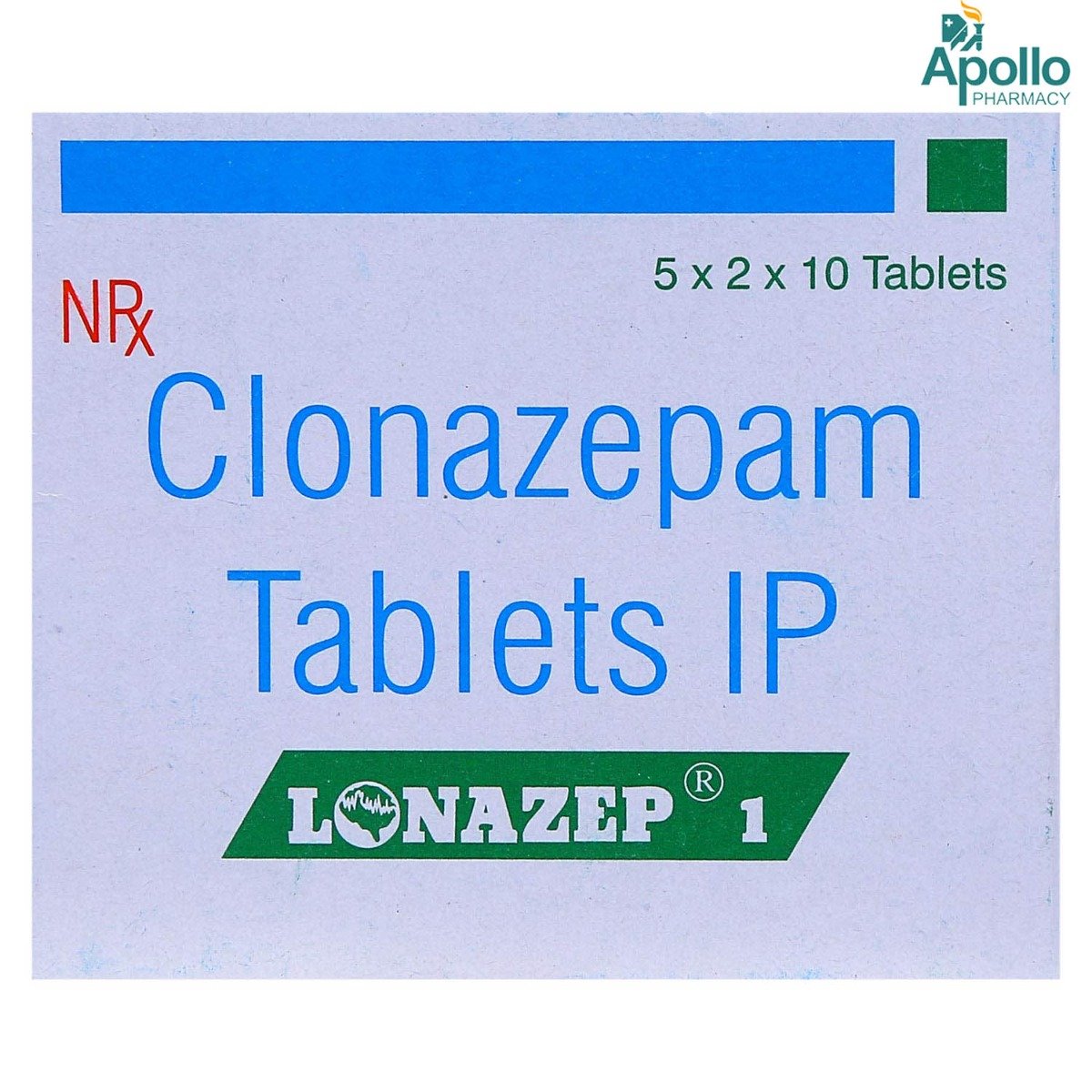
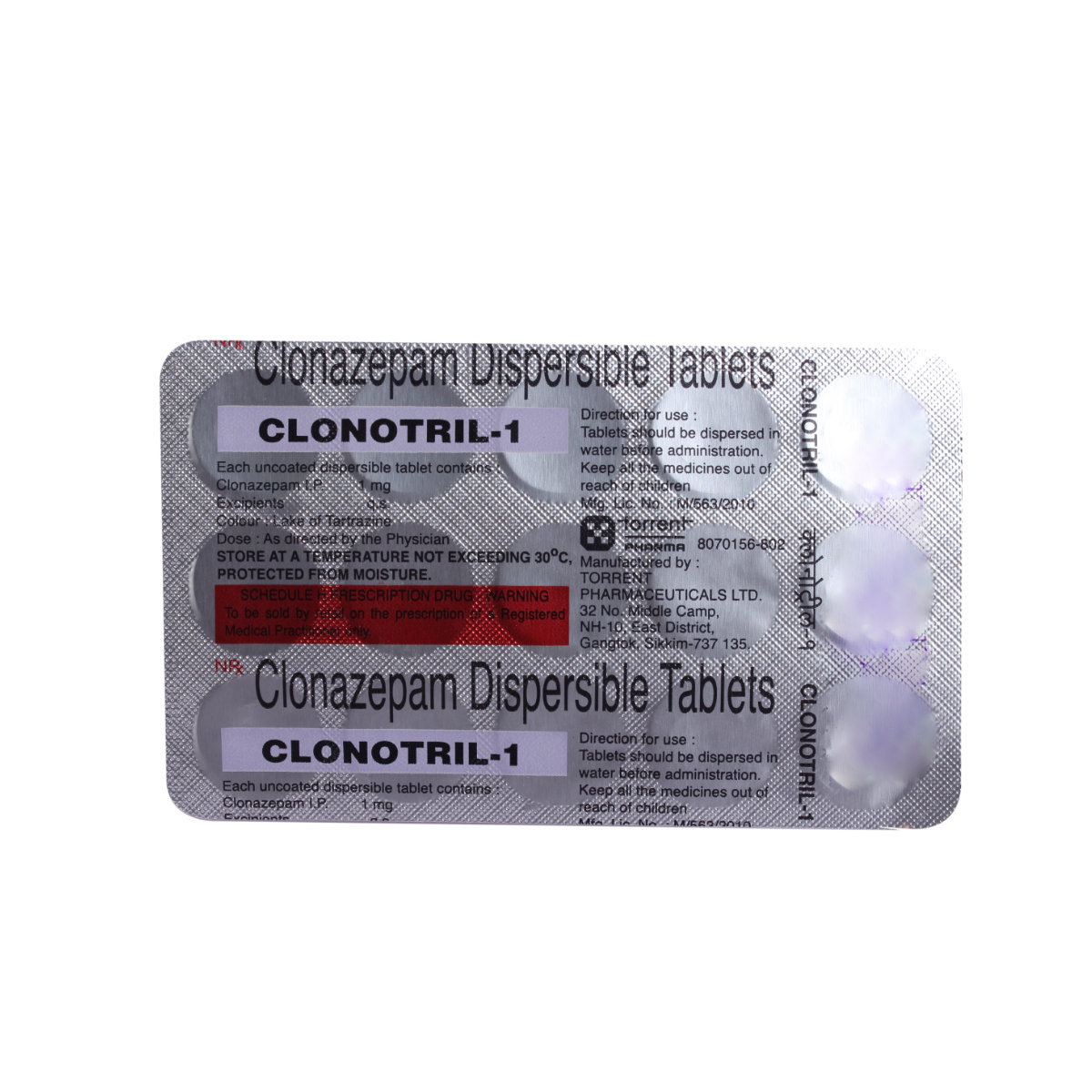


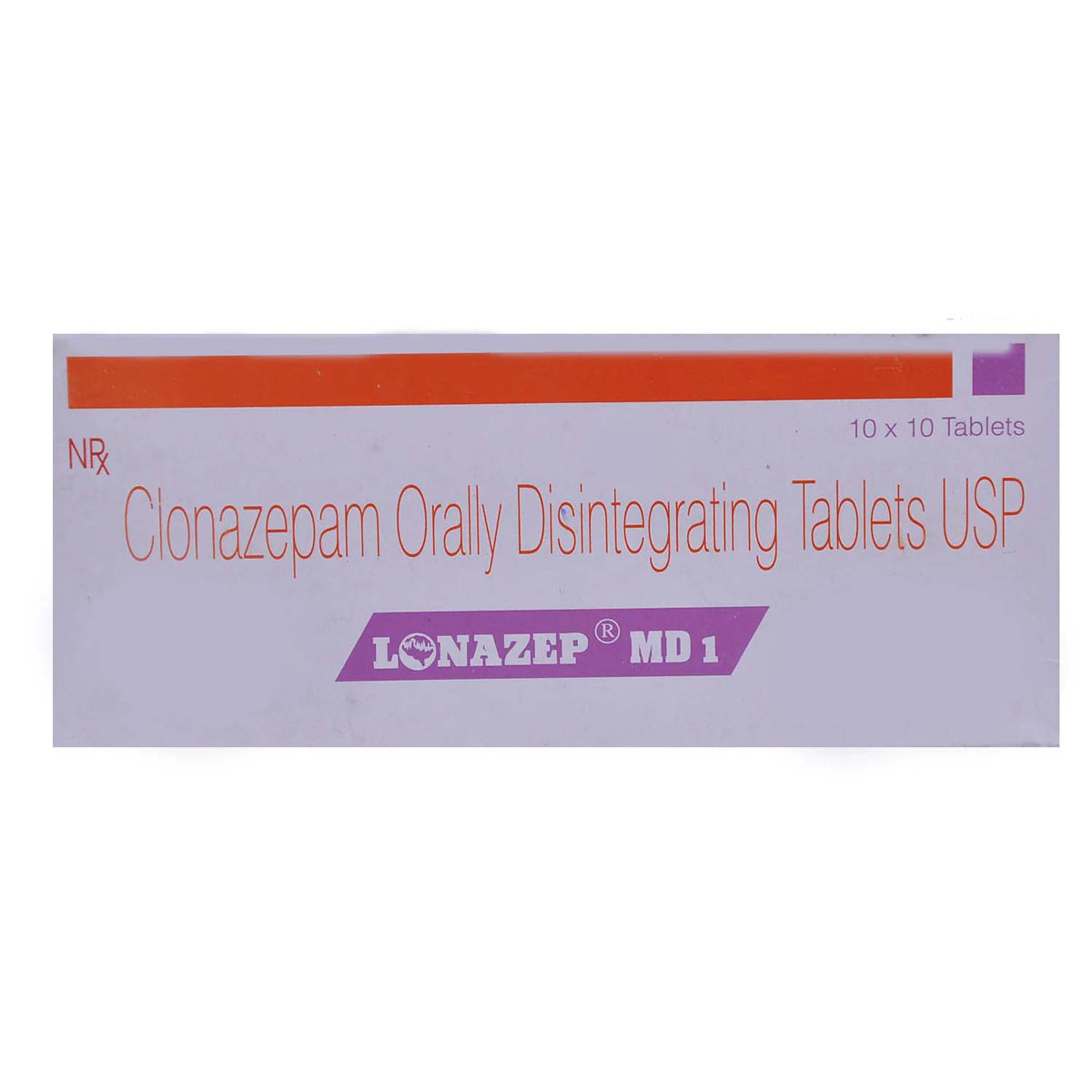
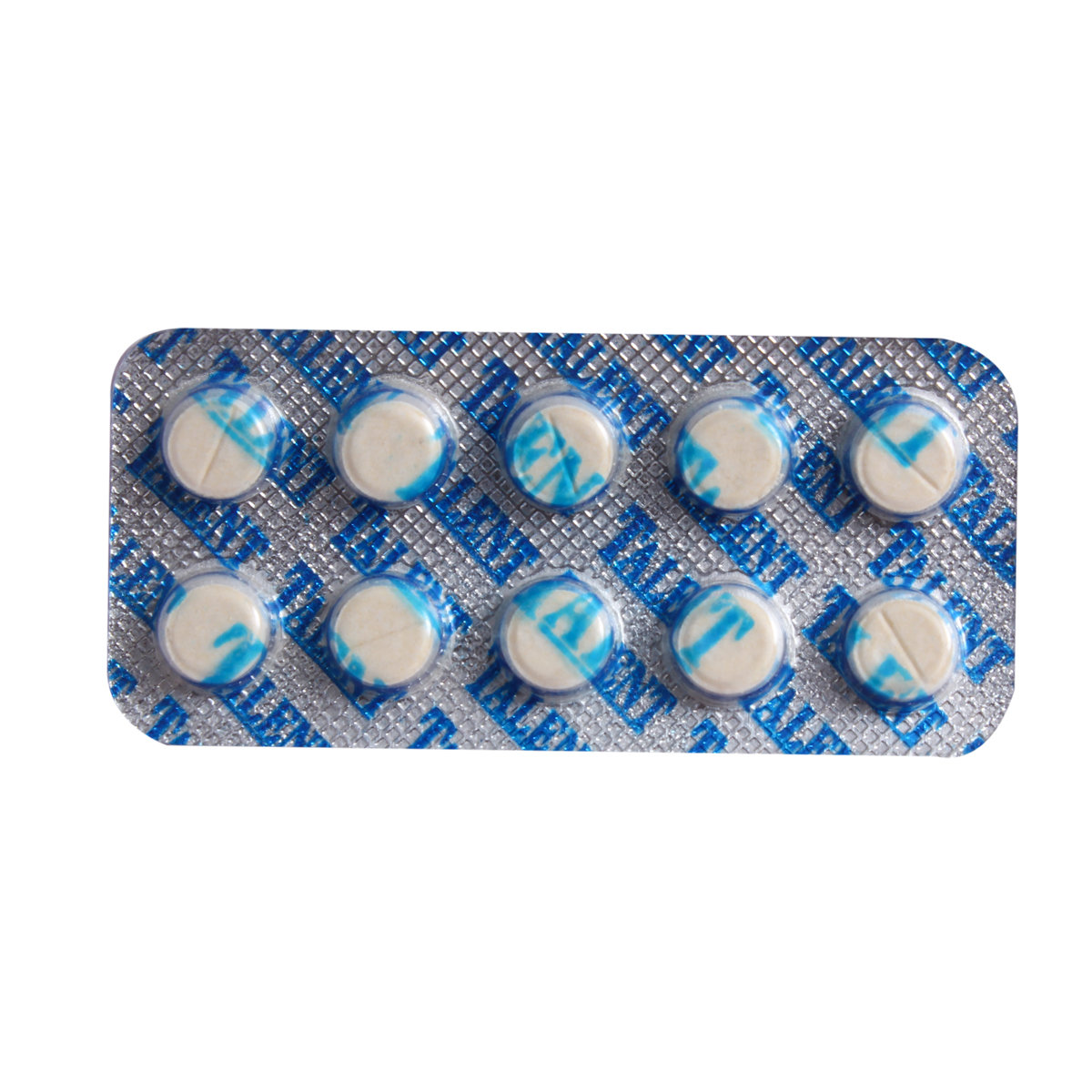

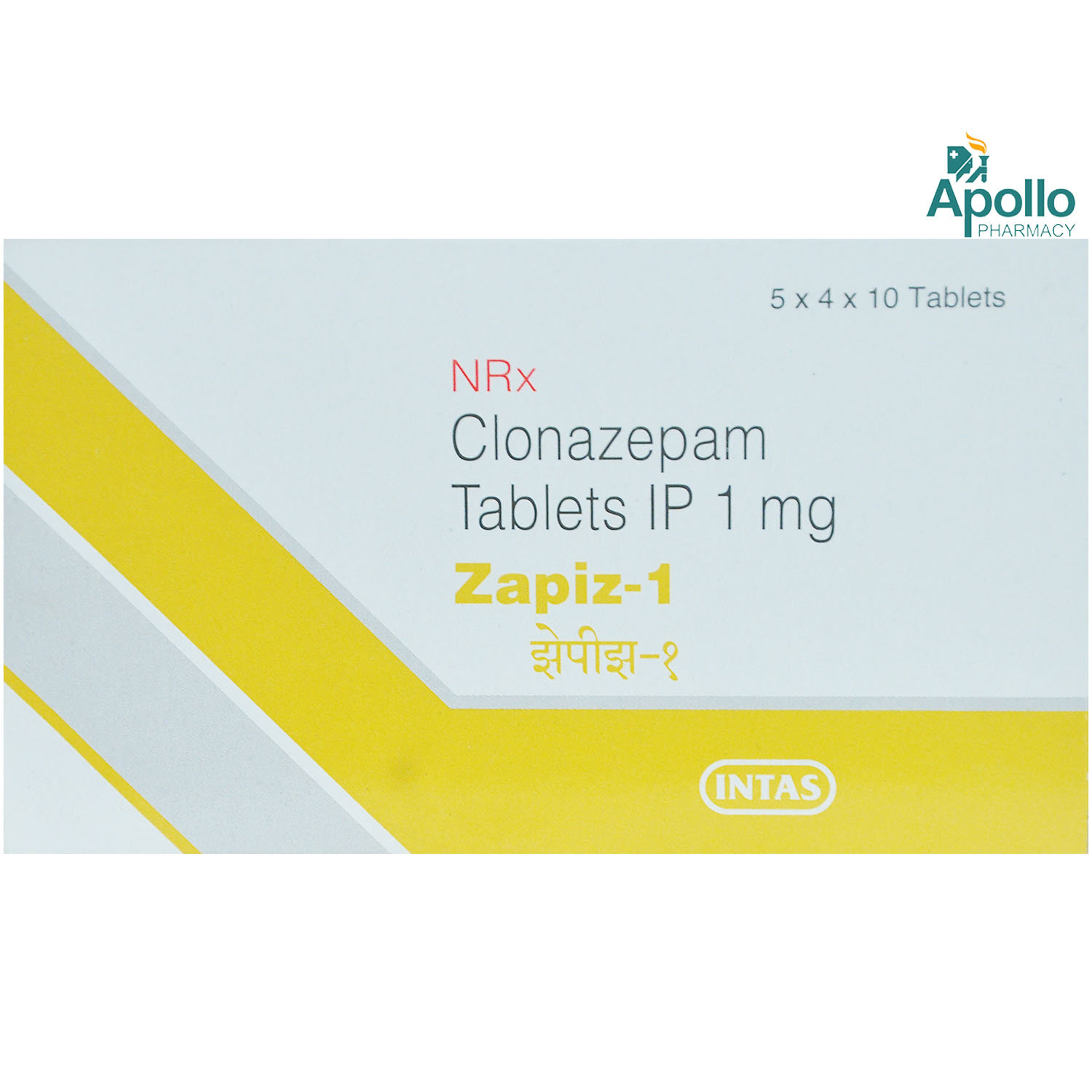


_0.jpg?tr=q-85)
